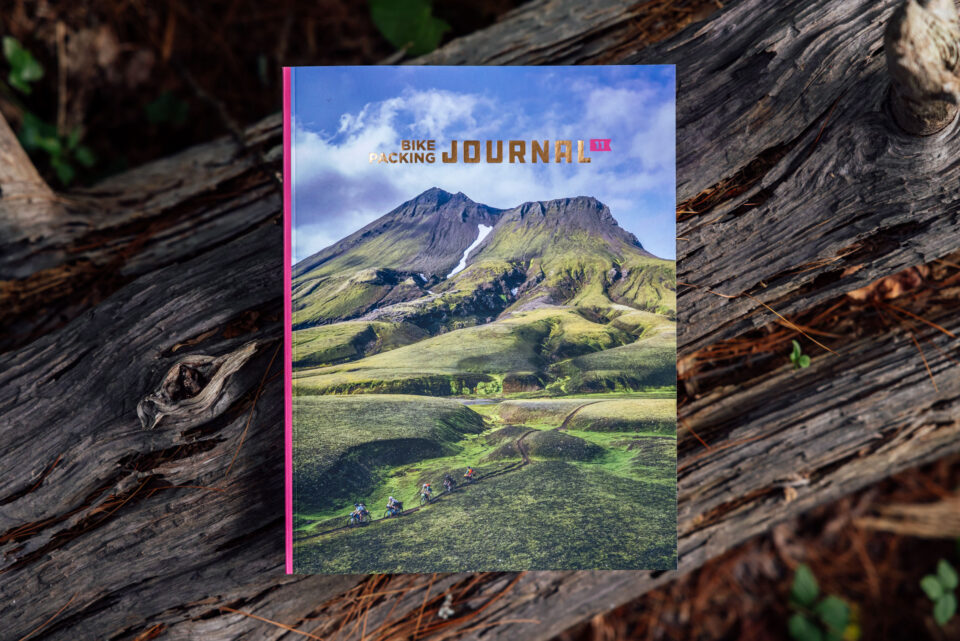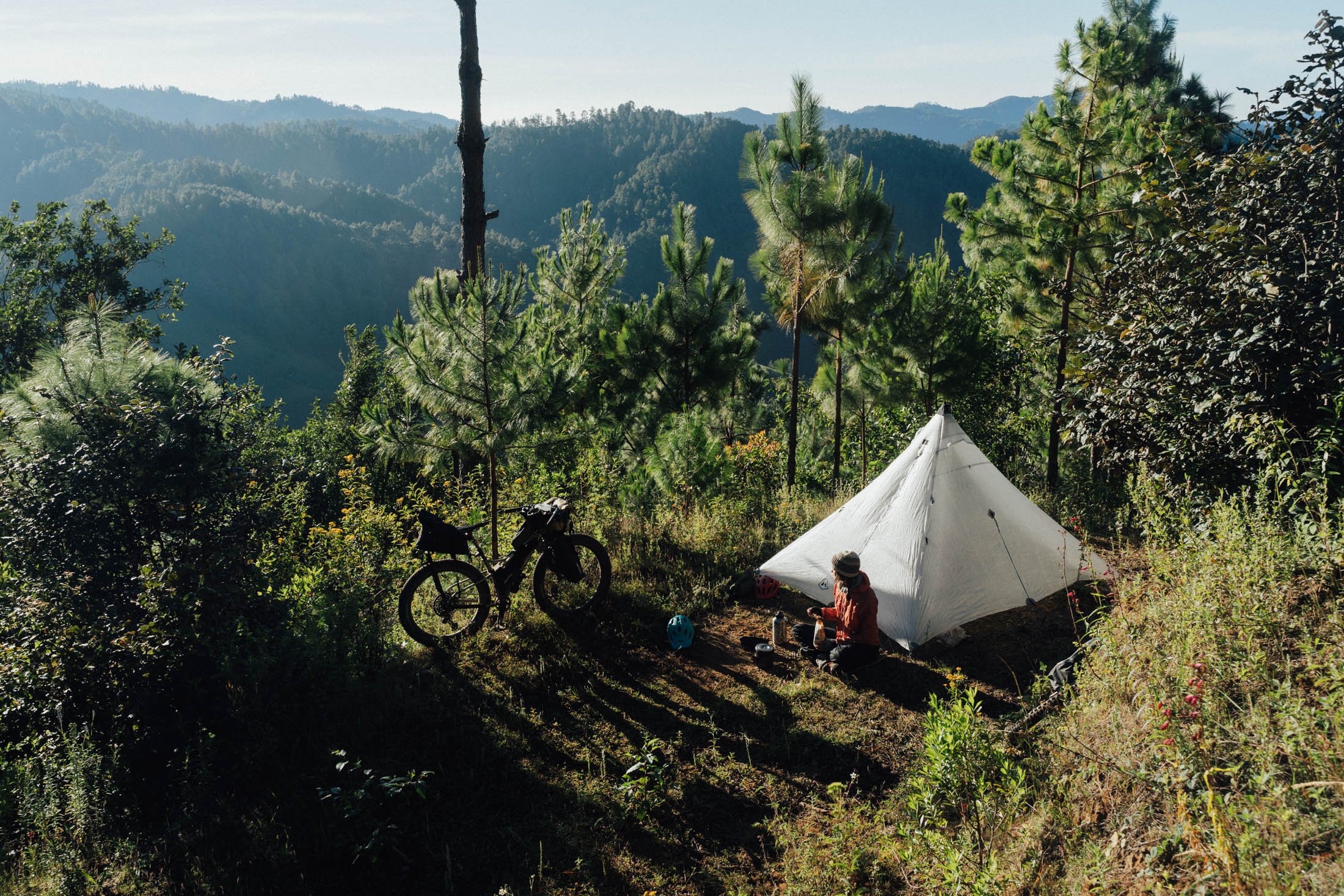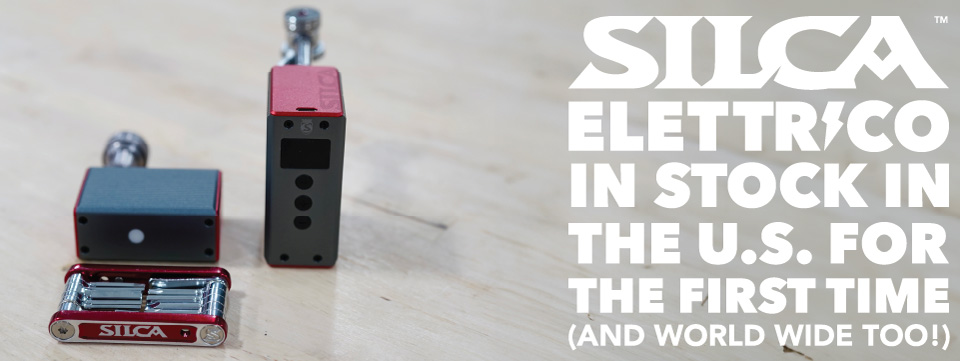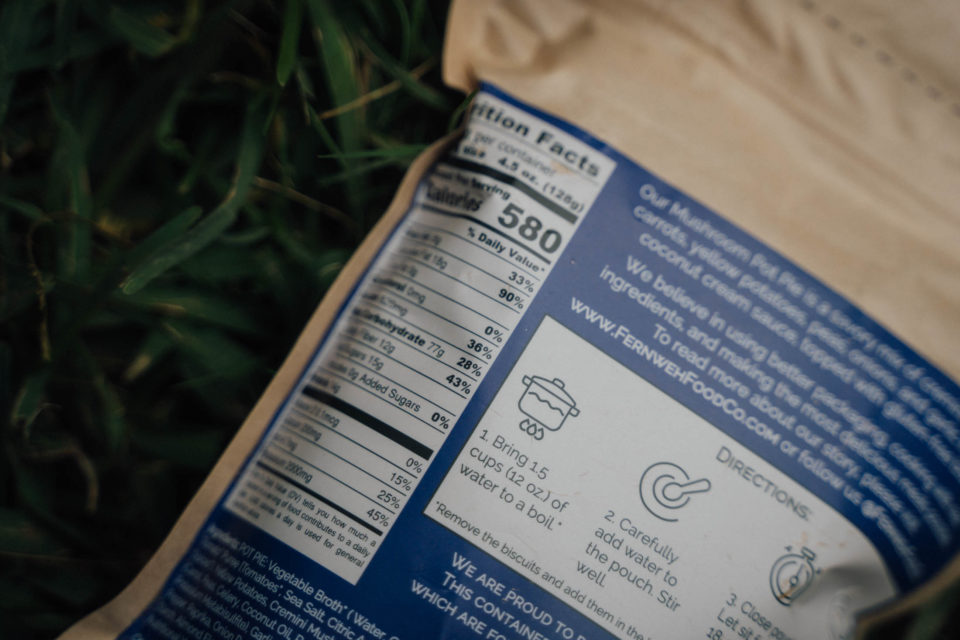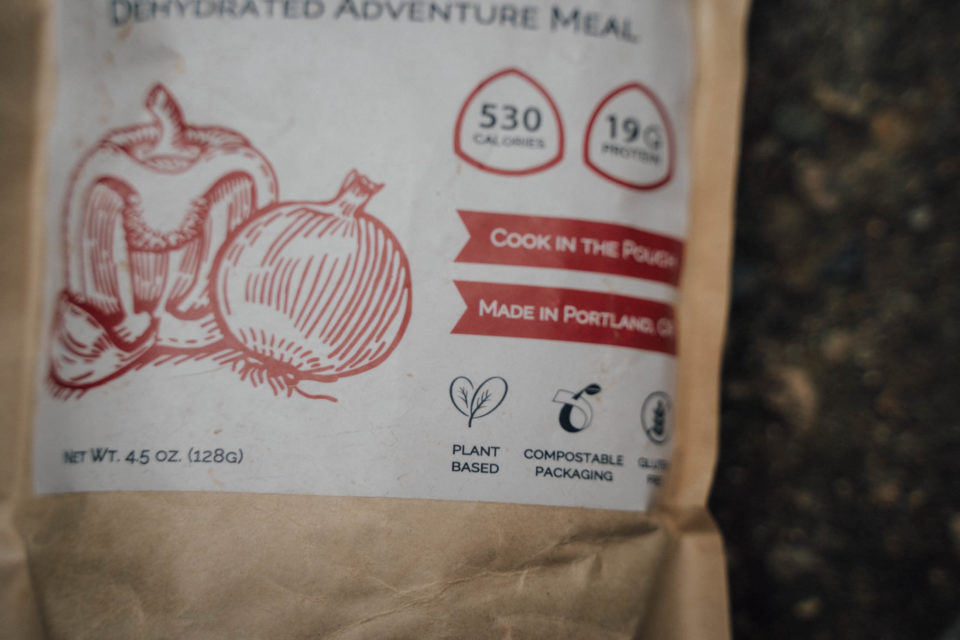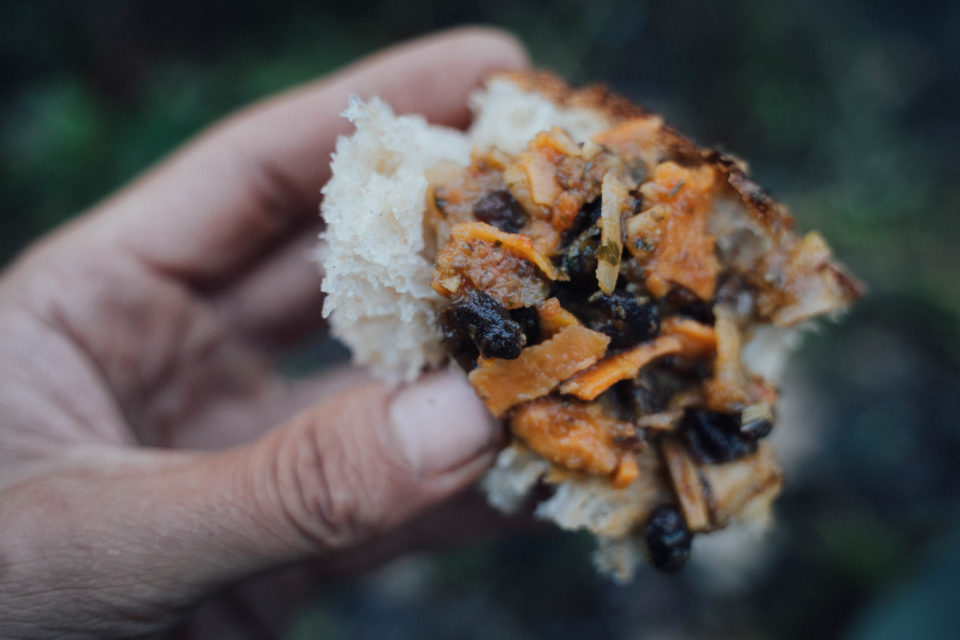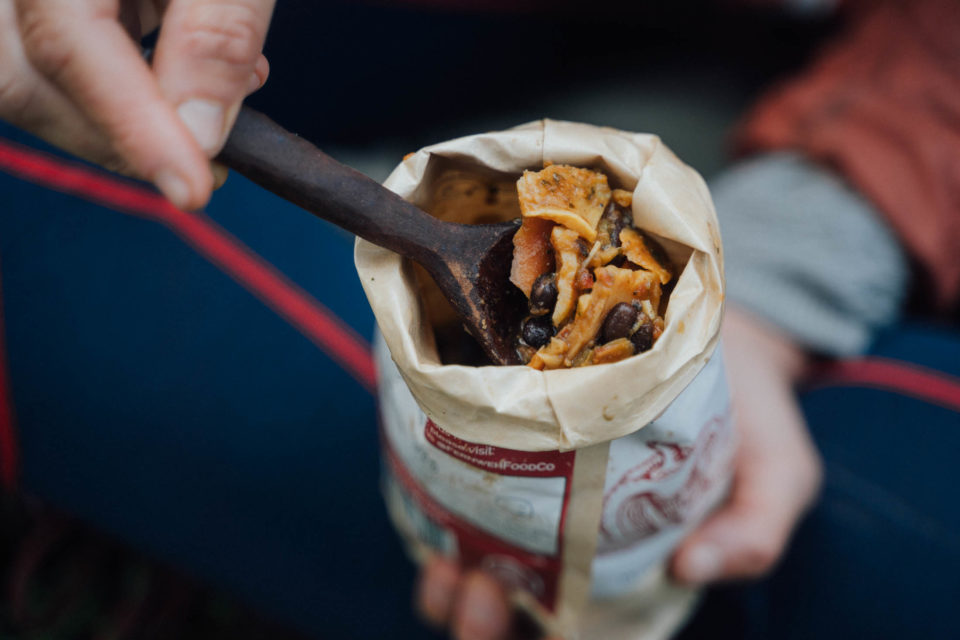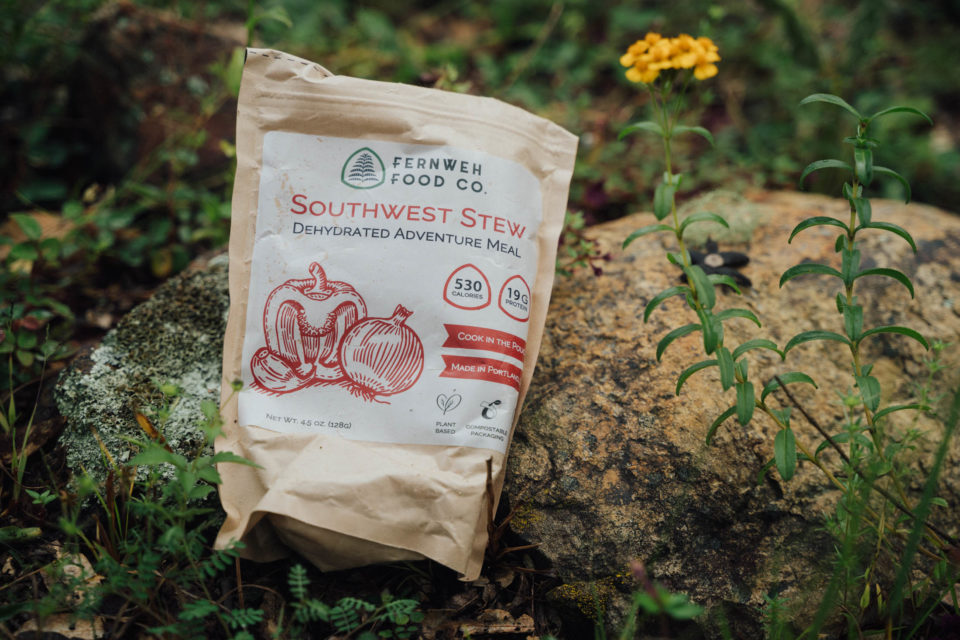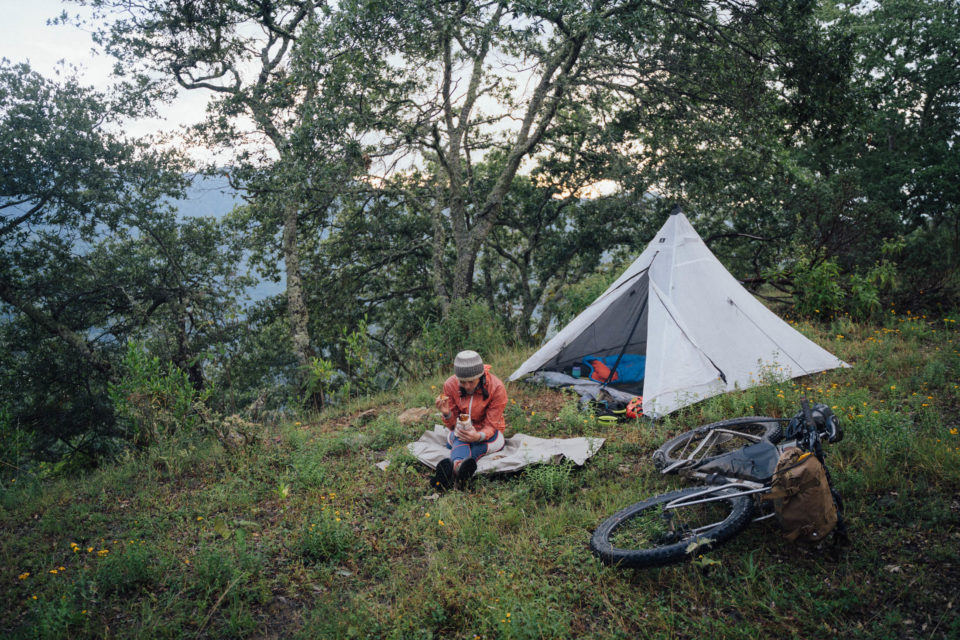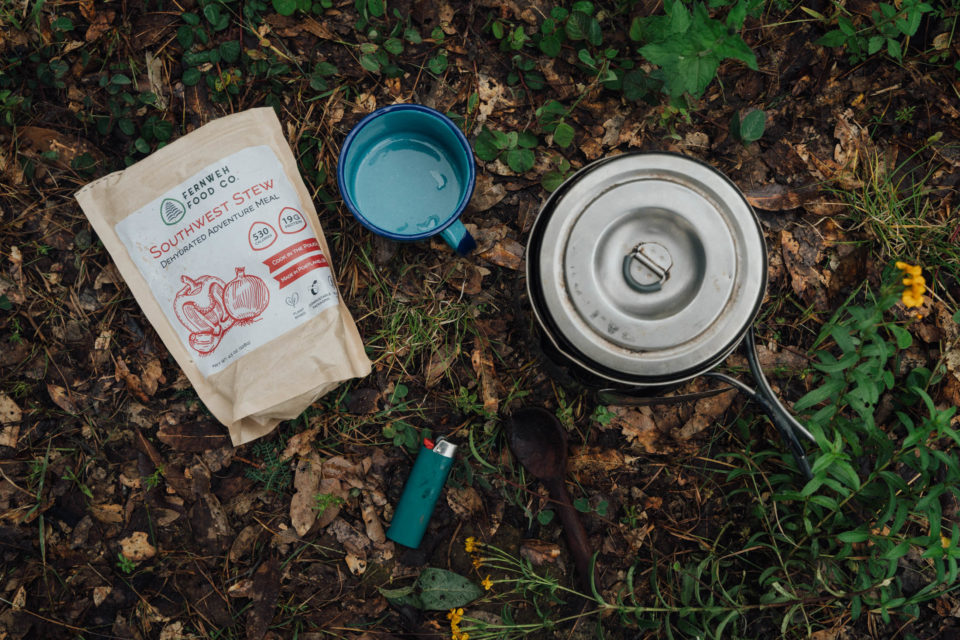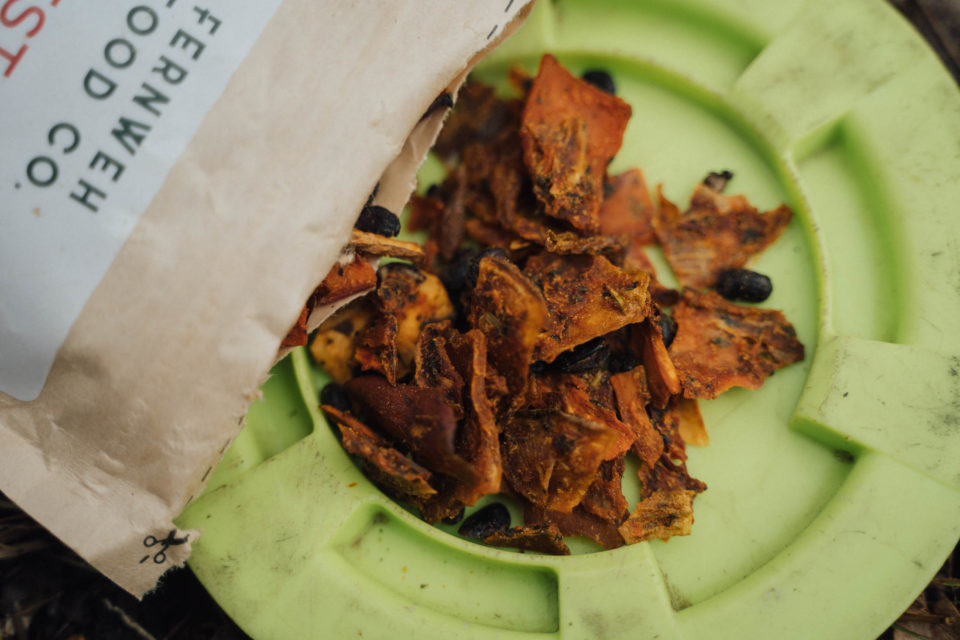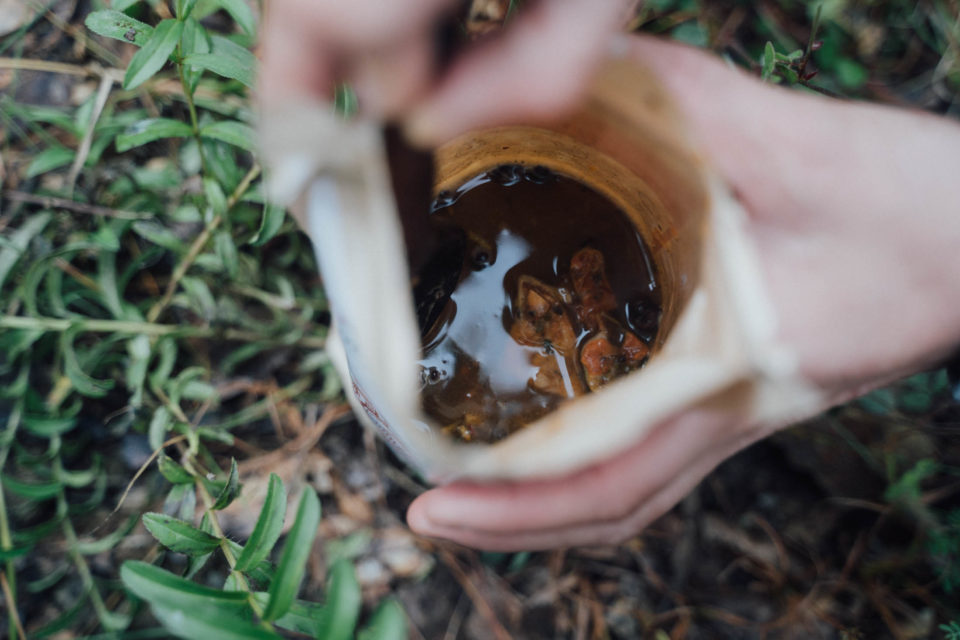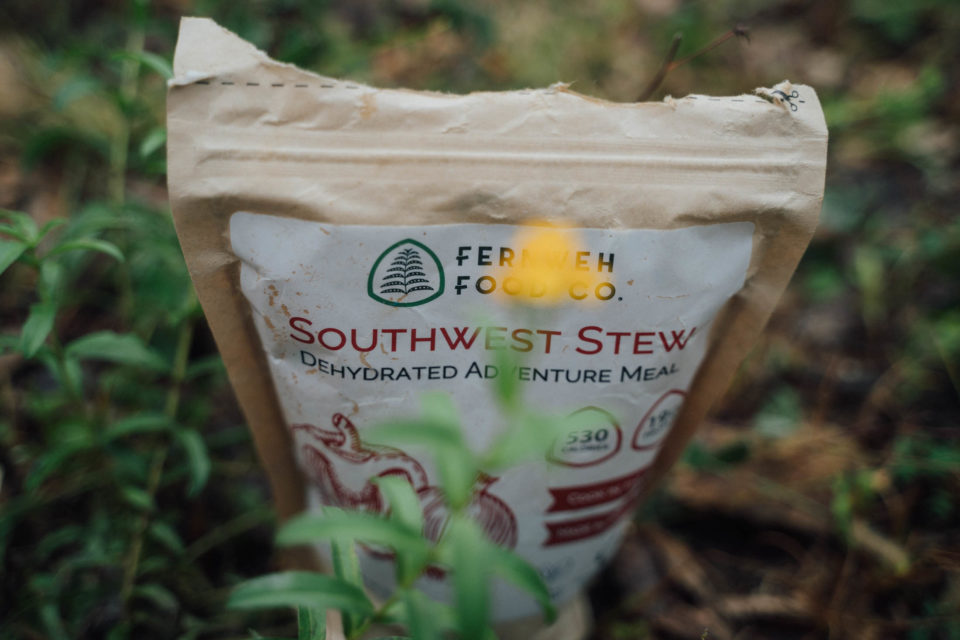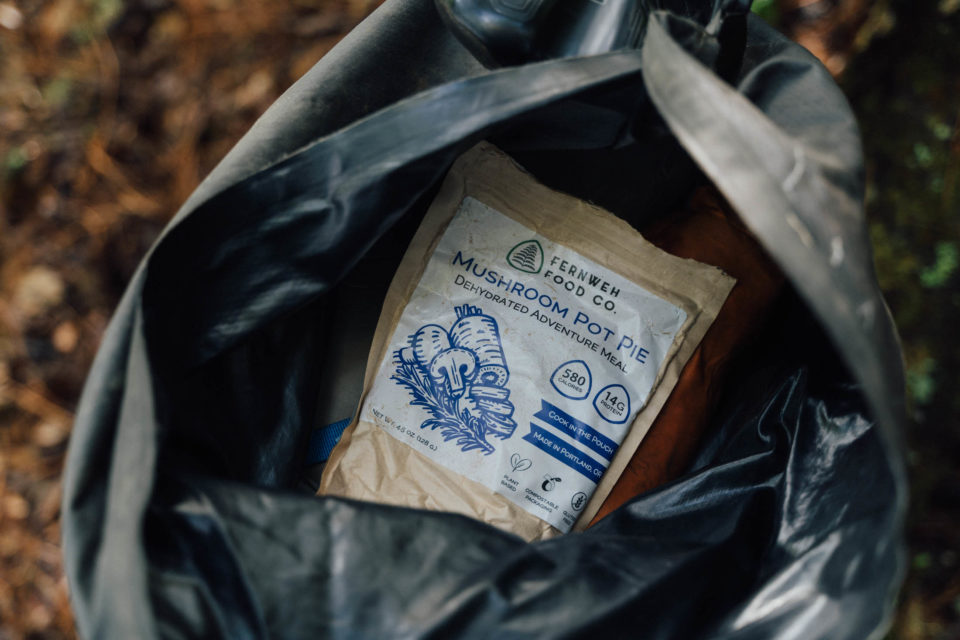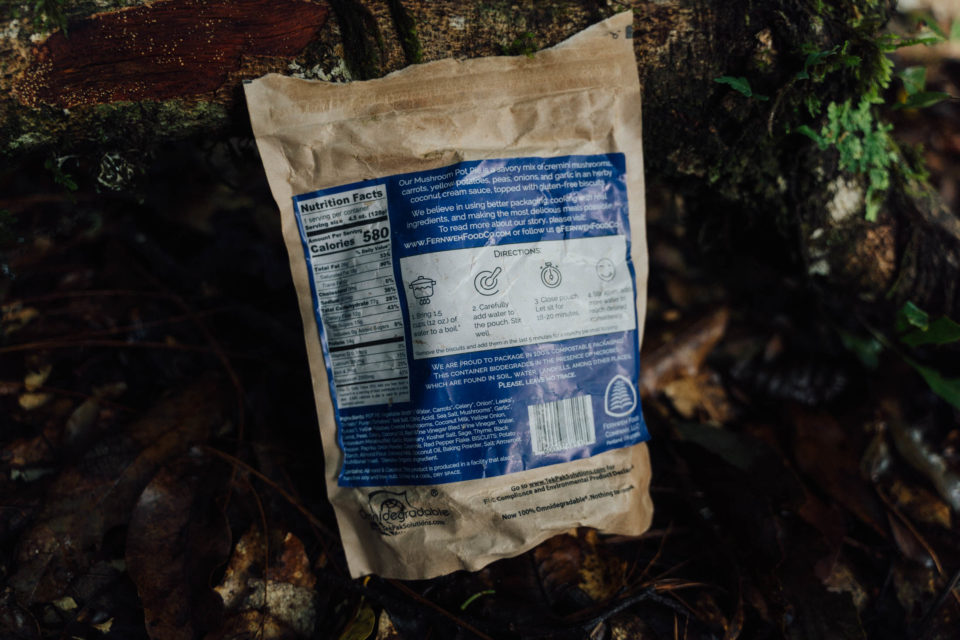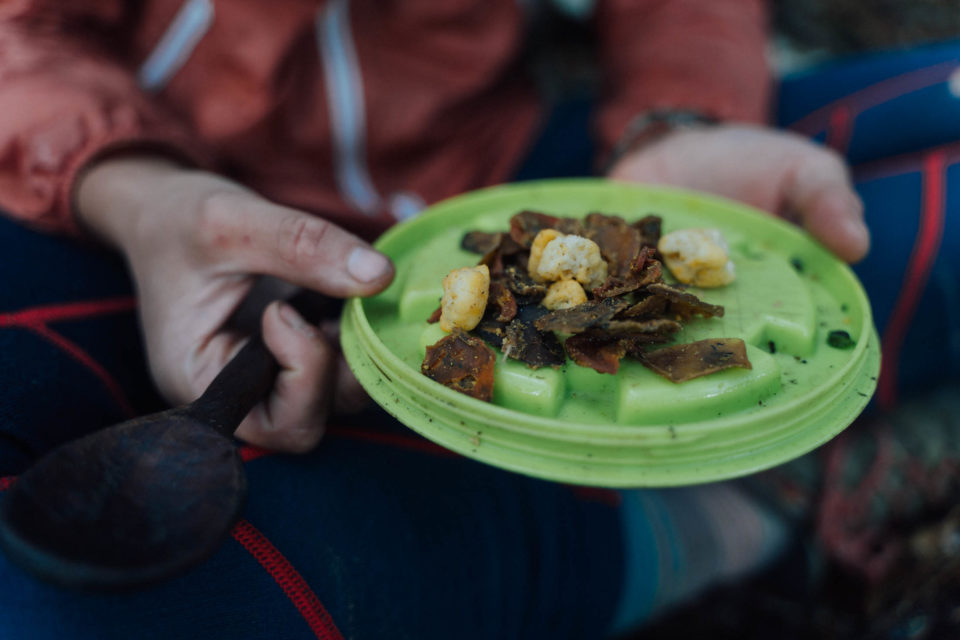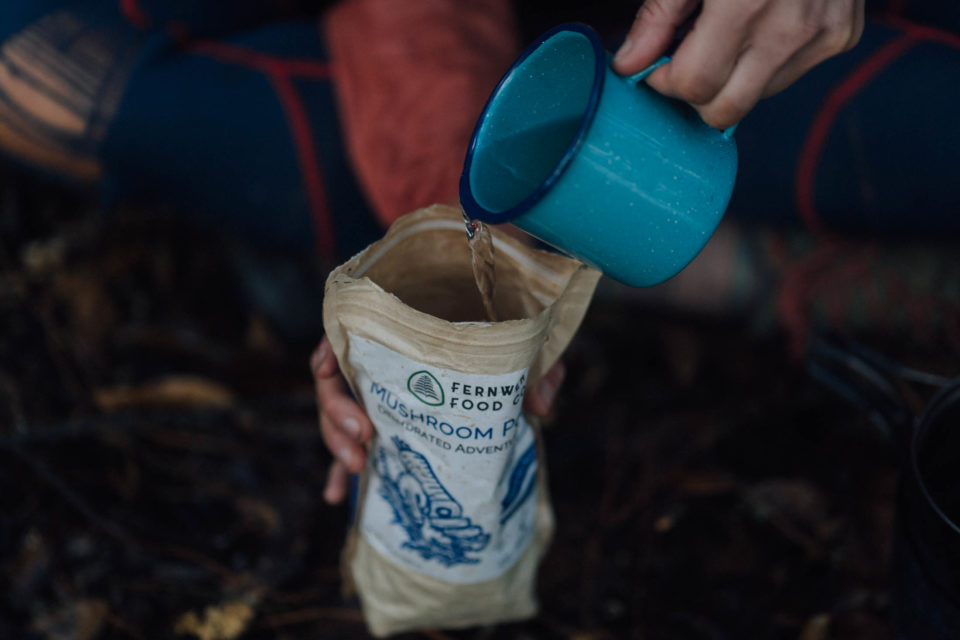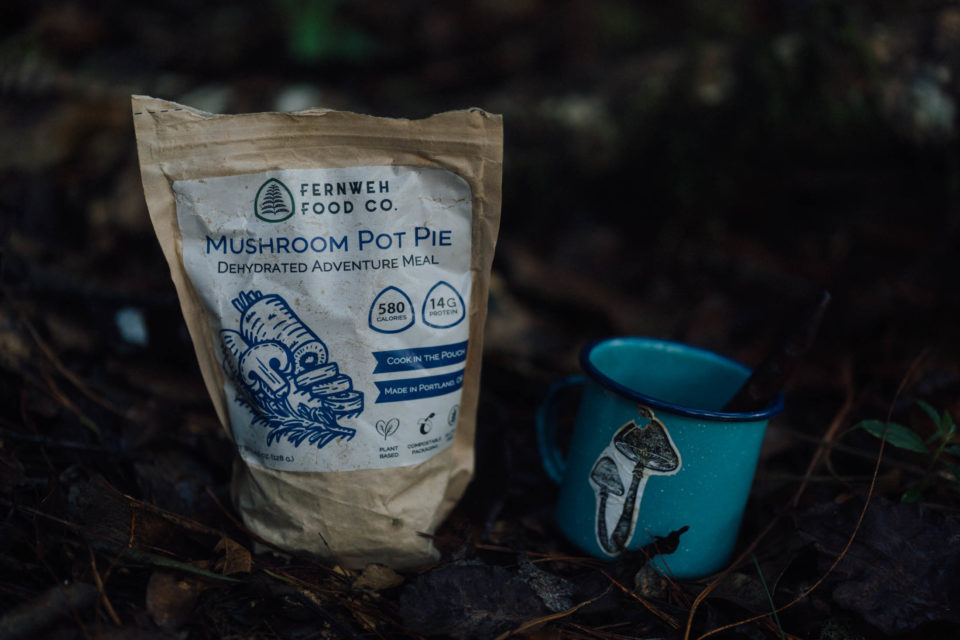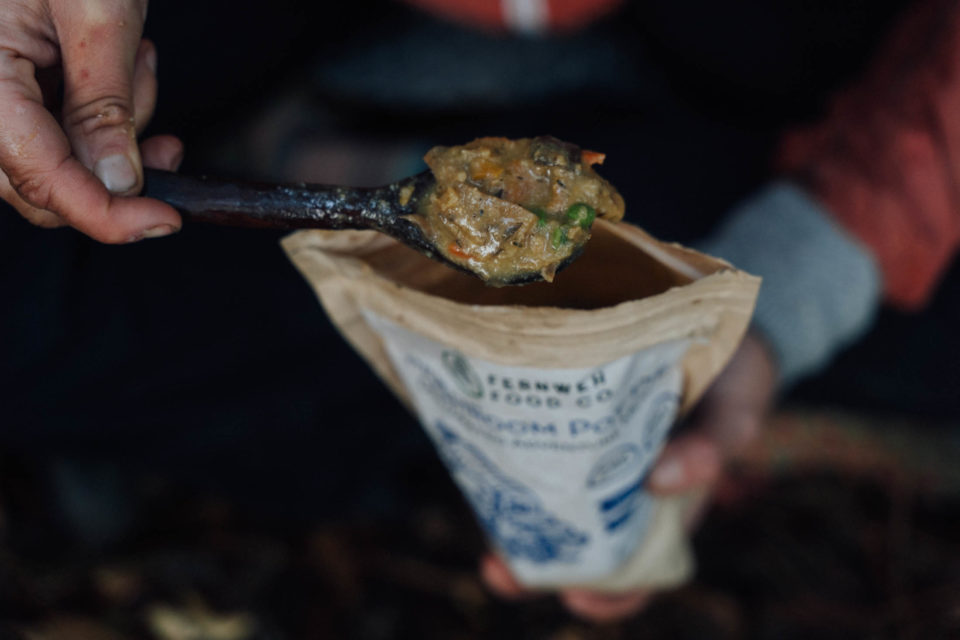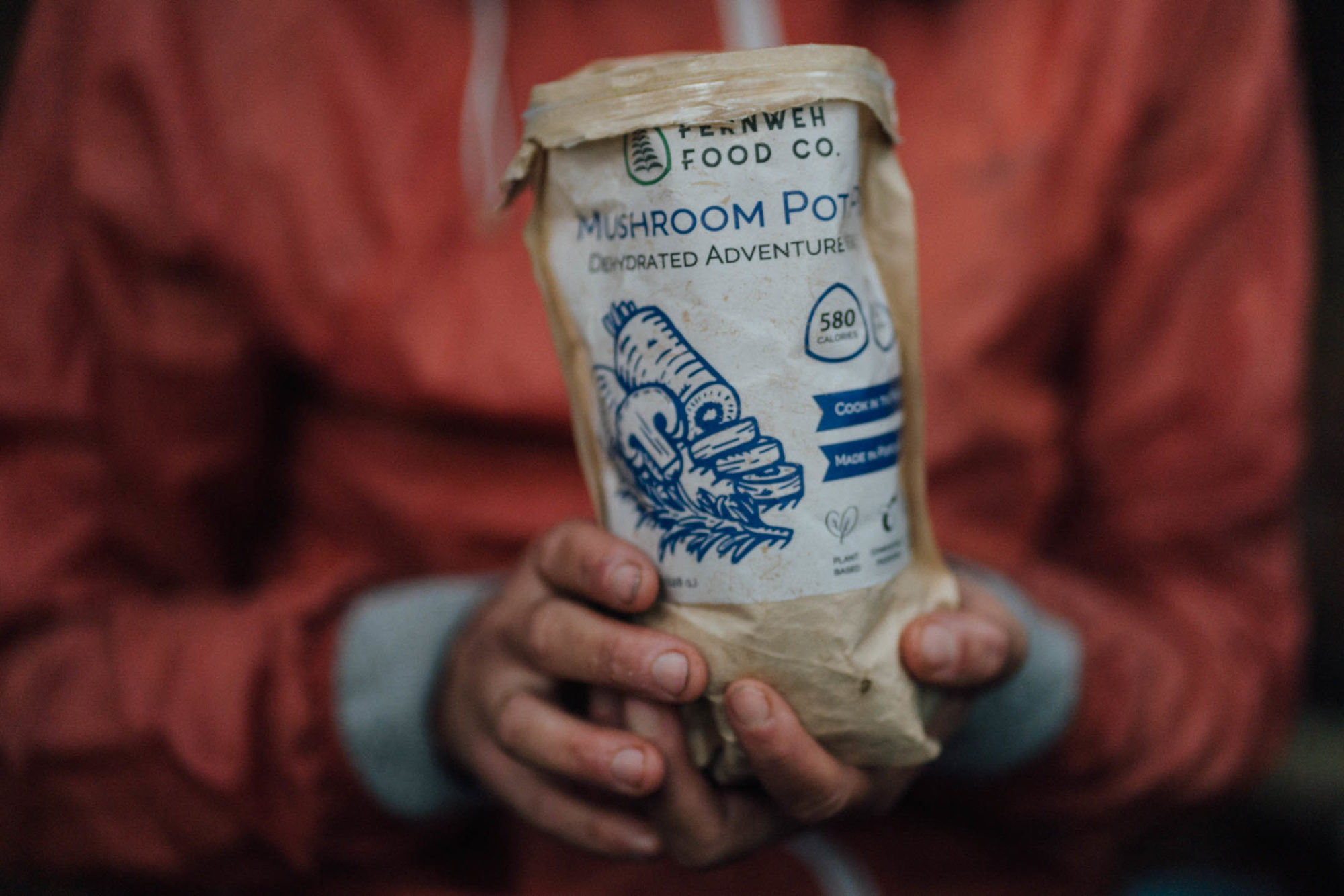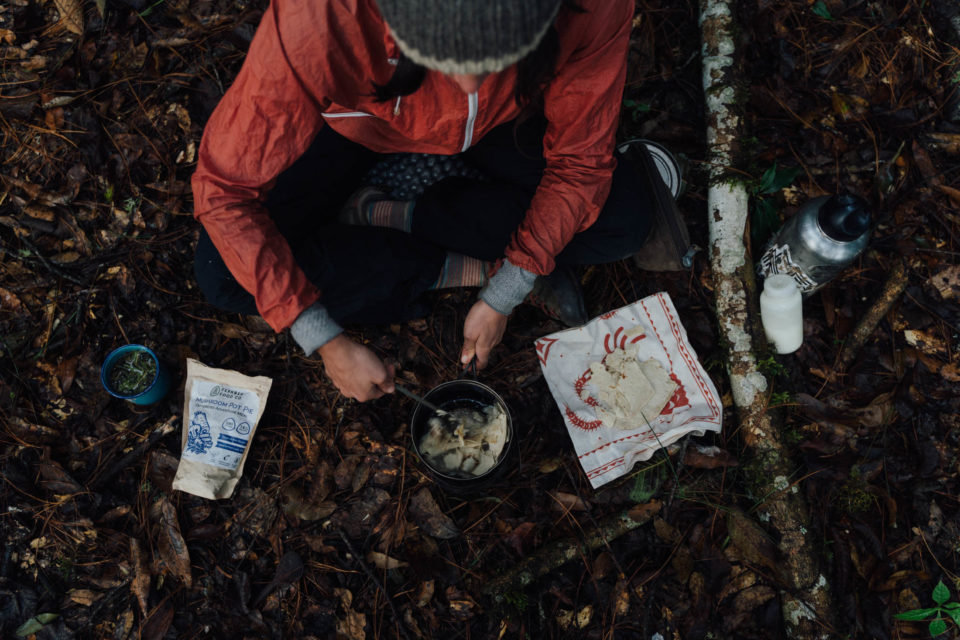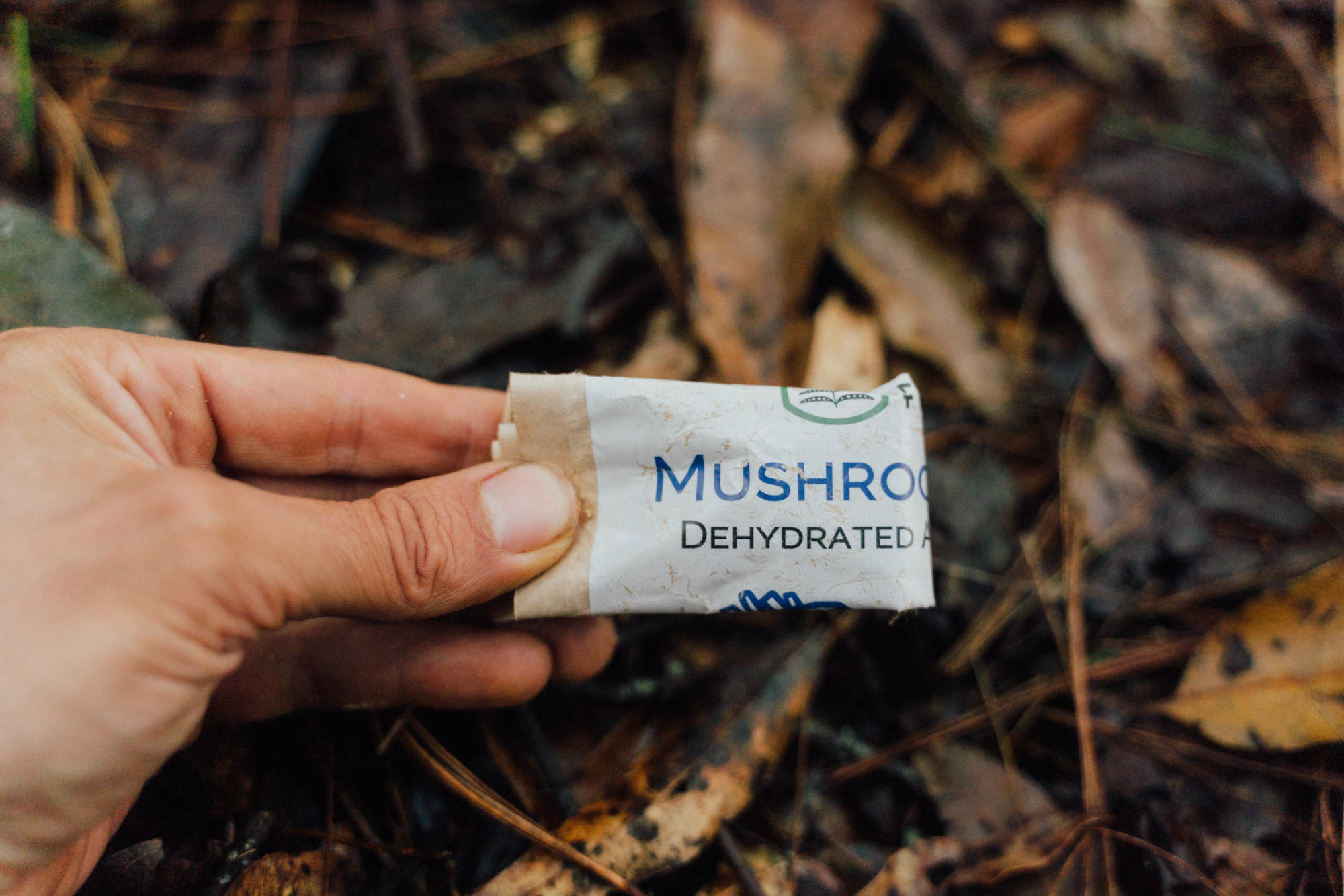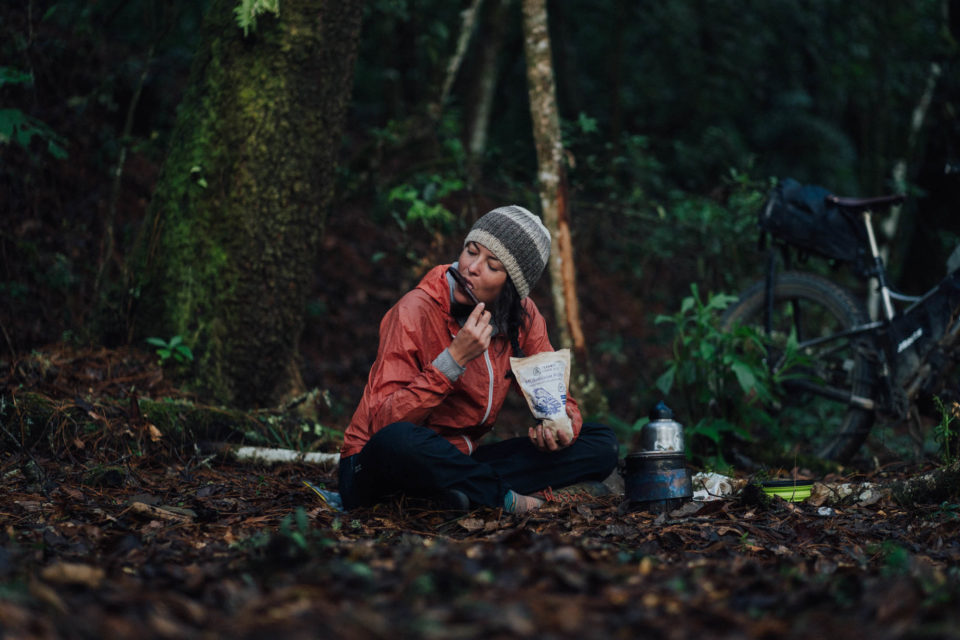Fernweh Food Co: Wholesome, Low-Waste Goodness
Have you ever felt that the packaging used by outdoor provision companies feels at odds with being in the great outdoors? Then check out Oregon-based Fernweh Food Co. and its compostable bag and bulk purchase options. We tickle our taste buds with a vegan Southwest stew and mushroom pot pie, and find out about Fernweh’s owner Ashley Lance, her bike, and more…
PUBLISHED Oct 23, 2020
I’ve often been disappointed by the way lightweight camping food is packaged. I understand the requirement for a certain robustness, to keep provisions safe and sound when it’s bumping around a backpack or jostling inside of a framebag. But unless you’re on an arctic expedition or stashing supplies for an emergency situation, most of the packaging used today seems very much at odds with being in the great outdoors in the first place – especially in the waste it generates. Clearly, making your own lightweight meals with a dehydrator is the most packaging-friendly approach – and cost-effective too. But for those who aren’t able to, buying pre-prepared camping food in compostable bags seems to be the next best thing.
So far, only a handful of small companies appear to be addressing this quandary (we’ll be listing the ones we know in our forthcoming guide to low-packaging bikepacking). The big names of the industry remain happy to do as they’ve always done, or at best, offer a recycling option, which is a kind of ‘two steps forward, one step back approach’ in the greater scheme of things.
A while back, I tried out a number of meals offered by Dorset-based Firepot Food in the UK. Aside from sourcing much of their ingredients locally, Firepot offers compostable packaging for day-to-day trips, as well as a line of meals in waterproof but non-recyclable packaging geared towards the specific needs of expeditionists. Makes sense.
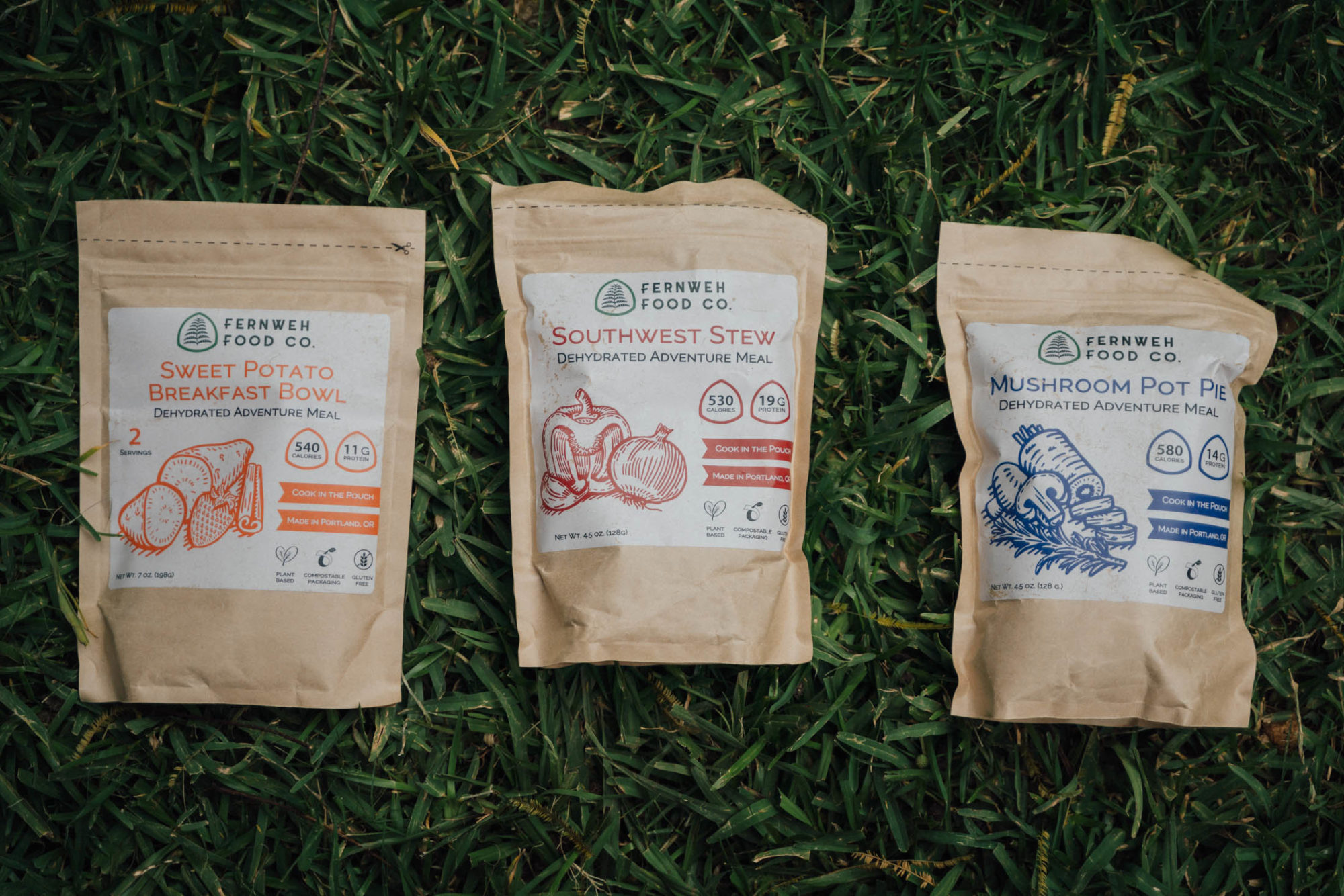
So, I was thrilled to come across Fernweh Food Co., a Portland-based company that caters to the US market with its own take on how to run a business responsibly, by offering three vegan and gluten-free meals and various snacks in appropriate bags – be they compostable, as reviewed here, or re-usable. The company was founded after owner Ashley Lance, who trained in Culinary Arts, began making her own food for bike tours and backpacking trips:
“Since I began adventuring, I have found the abundance of packaging and garbage piling up at trailhead trash cans and out in the wilderness to be disheartening. In an effort to be a part of the solution, I want to make this company as earth-conscious as I can. Taking a cue from the three R’s, Fernweh Food Co. is doing its part to reduce the amount of single-use plastics going into the wild by utilizing packaging that is 100% reusable or compostable. We cut down on food waste and lessen our carbon footprint by using produce that is local and seasonal.”
Currently, the company provides three core meals – two of which I’ve tried here – and a variety of seasonal produce in low-impact packaging. And, if you want to limit your waste further, you can also order in bulk, by the ounce, or in reusable cotton and muslin bags. “Buying in bulk will help you to reduce the amount of waste you produce and the amount of weight you carry. You can order complete meals, or you can order vegetables, grains and legumes to mix your own meals or to spice up a backcountry favourite. By offering bulk, you get what you want in the amount you need.”
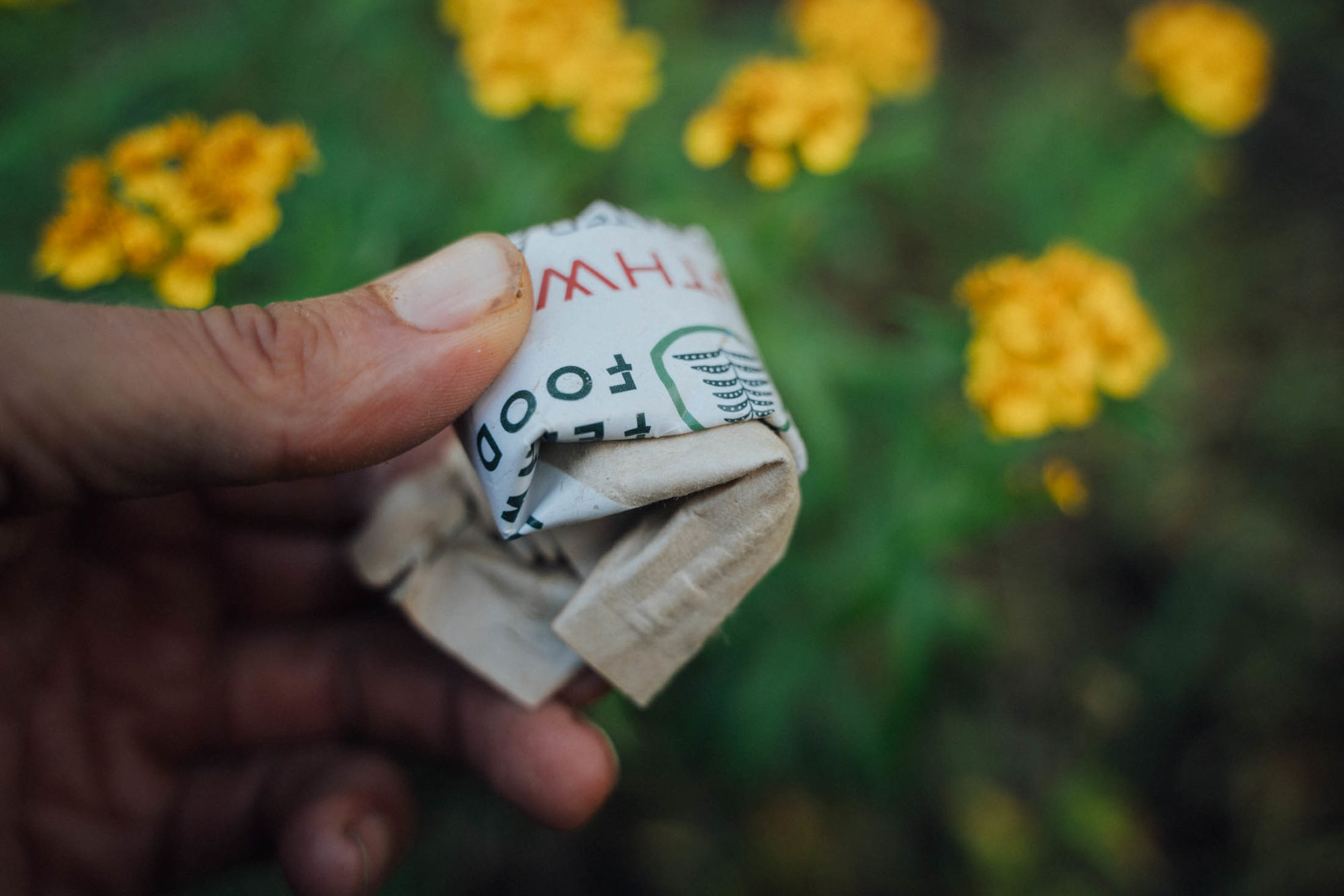
What’s more, not only are Fernweh’s meals sold in compostable packaging, but the bags are hardy enough to pour boiling water directly into – unlike Firepot’s, for instance, which need to be decanted into a separate pot. This also means it should hold up better to the rigours of bikepacking too, and over the time they’ve been smooshed amongst my gear, they remained puncture-free and the instructions clear to read. You should still pack them out and dispose of it at home, of course – the ensuing waste compacts down very small – but what if they end up in the backcountry? “From the bag to the label, everything has been researched. If it ends up in the river, the garbage, no matter what, it will break down completely. It was important to me to be as truly compostable and sustainable as possible. I’m committed to that part of our mission,” says Ashley.
Okay, packaging ethics aside… what about the taste?
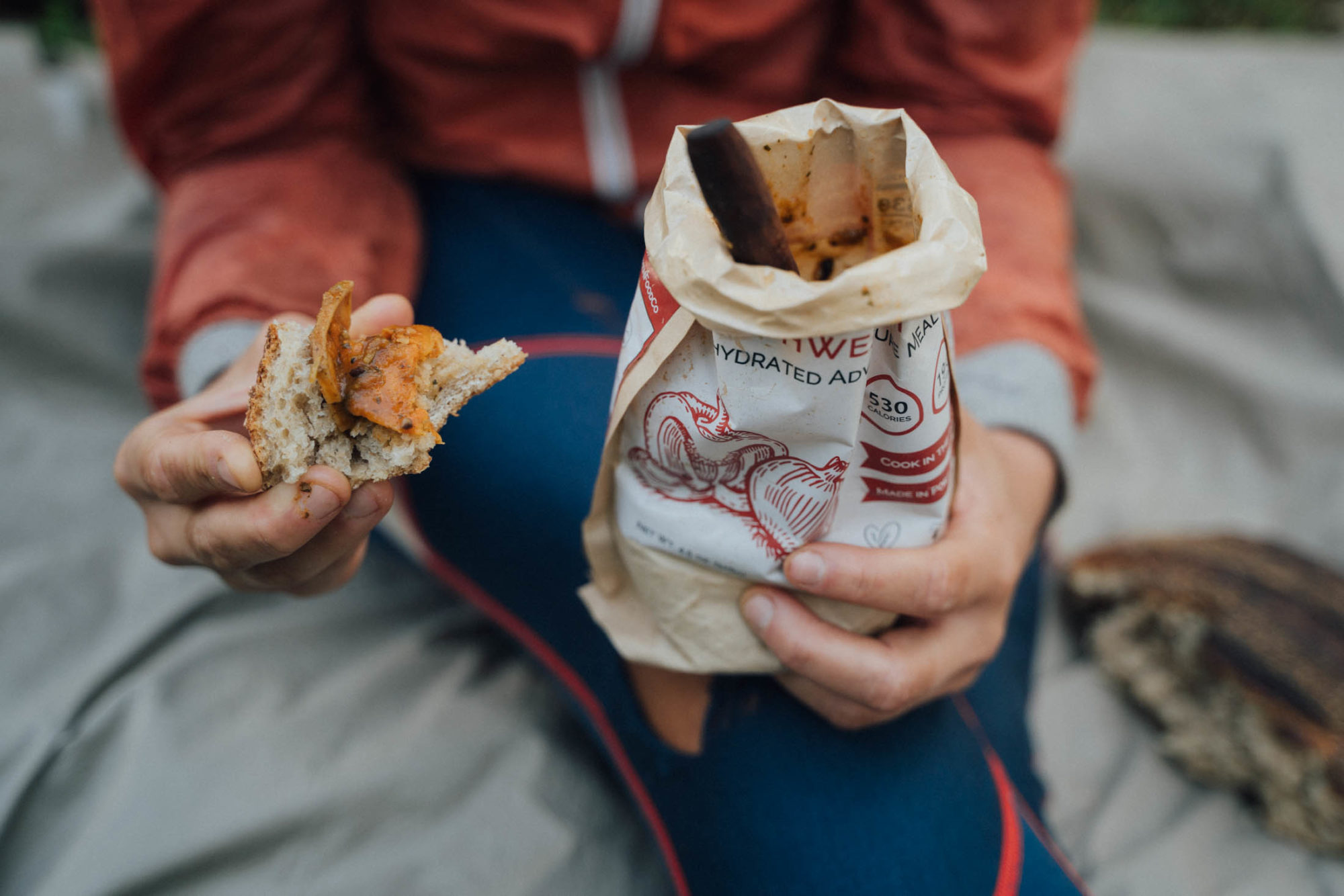
Well, we found both meals that we tried – the Southwest Stew and Mushroom Pot Pie (both $13.50) to be quite delicious! The stew was full of flavour, hearty, and filling. I’m not vegan myself, and I certainly didn’t miss the lack of ground beef. It was also spicier than I was expecting – and I say that in a good way. Fernweh recommends cutting it with some tortillas if need be. We carried a half loaf of fresh sourdough bread that we bought on our way out of town on an overnighter and found that to be the perfected compliment to the meal, allowing us to eke out a single-serve portion into two. The 4.5oz (128g) serving offers 530Cal and 19g of protein, and ingredients include sweet potatoes, tomatoes, green peppers, cilantro, olive oil, cumin, black pepper, thyme. It required 12oz (1.5 cups or 350ml) to bring to the boil.
More on Ashley, her bike, and compostable packaging
Hi Ashley! It’s great news that you’re a bikepacker, because it means you ‘get’ the needs of bikepackers! Can you tell us about a favourite trip and a bit about the bike you ride?
“I loved biking the Oregon Outback. Four of us rode this back in 2018 and it was the longest bikepacking trip I had done. I loved exploring our state, riding through the desert, eating the world’s largest steak at Cowboy Dinner Tree, riding alongside an antelope for miles, taking cold dips in streams and reservoirs, shooting slingshots, never being more thankful for CBD oil, and laughing through the rain, red sauce, and occasional pains. It was such a great week of riding with some of my favorite people on the planet. For this trip (and all bikepacking trips) I ride a Surly ECR with Jones loop H-bars, Ortlieb front roll and seat bag, Blackburn Outpost cages with dry bags from Next Adventure, a DIY framebag made from this BIKEPACKING.com tutorial, and a Makeshifter Snackhole.”
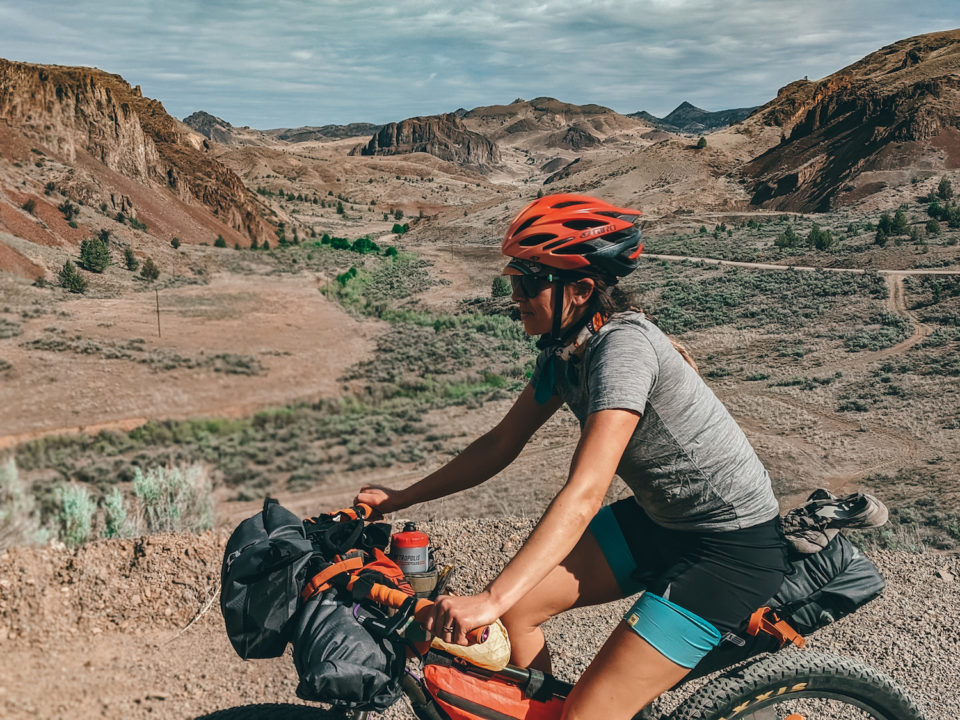
Onto the packaging you use for your meals… How you can cook in the bag, yet the bag still be compostable? That seems to be cool tech! And what’s the best way for people to compost them?
“Yes, it is a really cool package. I was torn between a PLA based (corn-based) bag and the Omnidegradable Tekpak packaging. I ended up going with the Tekpak because you can cook in it and it has a longer shelf life while still being compostable. To be honest, no compostable packaging is perfect – they all have their limitations, but I felt this one had the most benefits and offered the most ease for customers with making sure it actually composts no matter where it ends up. Its liner is made with an acid that begins to break down a soon as it comes in contact with microbes. Microbes can be found literally everywhere – in forest, rivers, oceans, landfills, home and commercial compost facilities. While it does take a little longer to breakdown than PLA, it breaks down completely leaving behind only water, CO2, and a small amount of organic biomass. It is always best to pack out everything and put it into your home or commercial compost, but if it ends up in some of those other places, I feel better knowing it will break down.”
How does the bulk purchasing option work?
“We offer bulk purchasing for folks who are planning longer trips, looking to have less packaging, or just really like our meals. We sell all of our meals and many ingredients in bulk. We require that you purchase five portions/ servings of each and we will offer you a 10% discount. These items will be packaged in our large reusable bags. They will need to be stored in an airtight container upon receiving them to ensure shelf stability – see information on our FAQ page on tips for storing our meals and snacks in the reusable containers. We do ask for at least two-week lead time to fulfill bulk orders. To order in bulk, please reach out to us on our contact page.”
Lastly, do you have plans to grow the core range, or are you happy with how things are?
“We love what we are currently offering but we are definitely working on a few new meals this fall/winter for a spring rollout. We want to offer a savory breakfast option as well as two additional dinners.”
As for the Mushroom Pot Pie, it’s also excellent, and perhaps my favourite. The consistency is great – creamy and savoury – and it tastes like real comfort food, just as a pot pie should be! It’s also a little spicy, but less so than the stew, and the salt content tasted spot on. Ingredients-wise, expect your palate to be tickled by a vegetable broth of carrot, celery, onion, leeks, as well as yellow potatoes, cremini mushrooms, coconut milk, and a whole lot more. The biscuits are made from potato starch, almond flour, coconut milk, and coconut oil, so no skimping on the quality of the ingredients. You can even remove the biscuits and add them in five minutes before the end for a bit of crunchiness, though we left them to soak. The 4.5oz (128g) serving equates to 580 calories and 14g of protein. We used the excess water we boiled to make a loose leaf tea and cooked up a few day-old tortillas in coconut oil to make the pot pie satiate two hungry cyclists.

In terms of preparation guidelines, the recommended time to bring your water-starved meal to life was fairly lengthy, but as the bag can be sealed and left to one side, we got on with camp duties. We left them for 18 minutes in 12oz of water, the minimum suggested, and that worked out well, though if anything, I’d add a little water to the stew. One small quibble – I’d love water volume to have been listed in millilitres too, as my (US-bought) pot set only offers metric increments.
There’s a 2-person sweet potato breakfast bowl too, which I’ll add in to this review as soon as we try it. At $15 and 1080 calories to its name, it offers better dollars/calories, for those interested in such numbers. The rest of the range is all seasonal and more of a mix and match nature. It includes such exotic tastes as apple with ginger, cantaloupe with basil, watermelon with mint and lime, spiced green peppers, shishito peppers, and more.
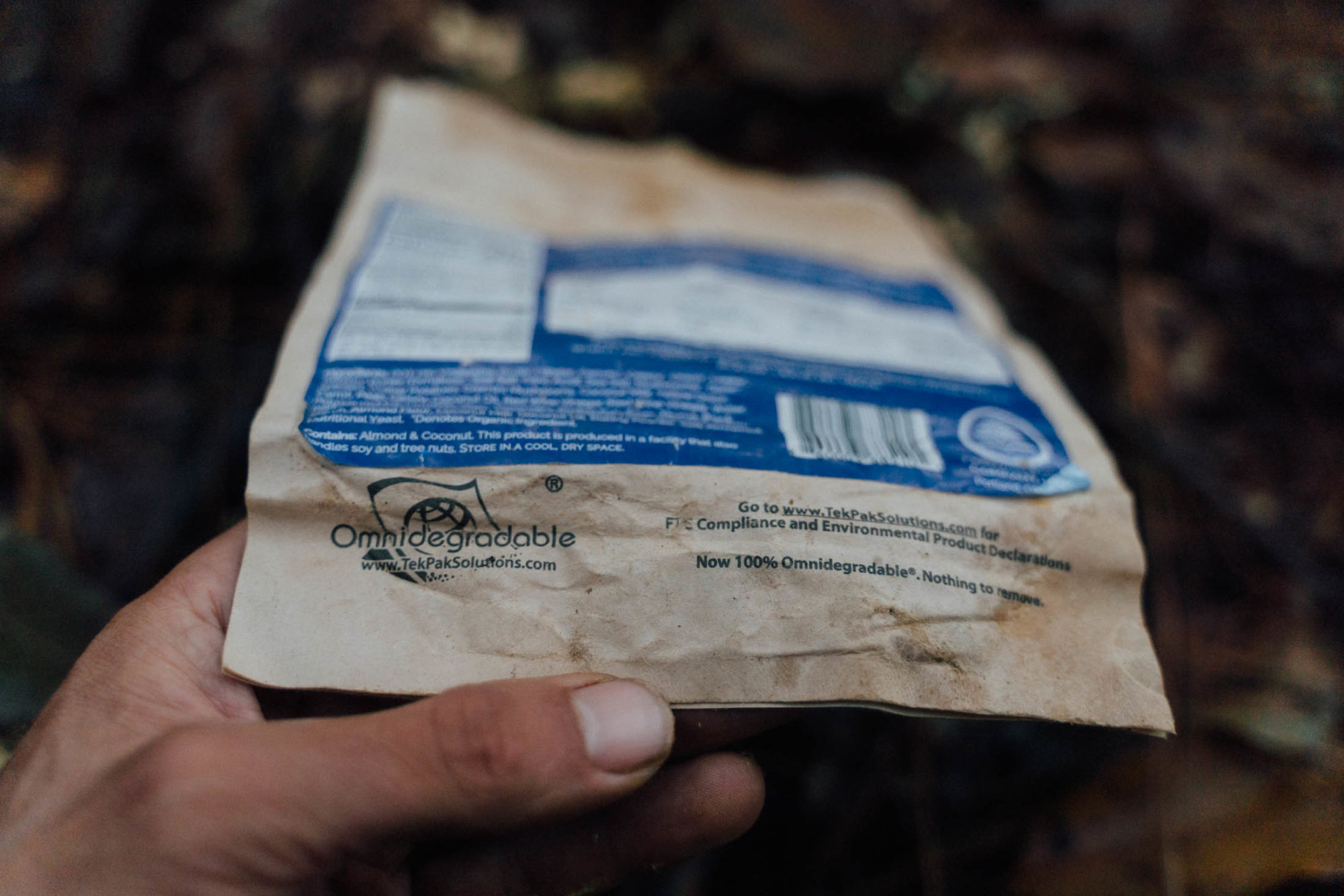
All the nutritional details of each meal can be found on Fernweh’s website and details on Omnidegradable Tekpak can be found here.
Pros
- Extremely flavourful meals
- Fully compostable packaging and zero waste, bulk options too
- Locally sourced and seasonal produce
- Real comfort food!
Cons
- Expensive compared to larger brands (Fernweh’s breakfast is best value and a 10% discount on bulk purchases is available)
- Only in oz increments, which makes it tricky measuring with some pot sets
- The stew is on the spicy side so it might be best to team it with tortillas or some bread.
- Weight 130g
- Place of Manufacture Portand, US
- Price $13.50
- Contact Fernweh Food Co
Wrap Up
It may be a small year-round range for now, but I’m really impressed with how much care Fernweh has put into their meals, on every level. The taste is excellent, there’s no skimping on the quality of its locally sourced ingredients, and you can choose between buying in bulk or home-compostable packaging.
Whilst portions sizes are perfectly generous for one person (and we were happy splitting them with added bread or tortillas), price will inevitably be a divisive factor, being a significant notch higher than both the prepped meals you’ll find in the likes of REI. But I think the superlative quality of the food and Fernweh’s business model more than makes up for this. Because I kid you not… it’s as if you’re enjoying a meal you’d be delighted to eat in a restaurant, albeit with a far more beautiful backdrop! And ultimately, a part of the $13.50 price tag can be put down to paying ‘true’ costs up front, and not somewhere down the line.
For those who want convenience without adversely affecting the planet we so love to explore, Fernweh is a company who has not only fine-tuned the dehydration process in terms of what tastes great, but is also pushing to keep every aspect of its business in keeping with being in the great outdoors. And the owner loves bikepacking too!
Relevant to these times, I’d add that during the pandemic, bikepacking with prepped meals – be it your own or purchased – make even more sense, as they reduce the need to stop and resupply, whilst still proving tasty and nutritious food at the end of the day.
Please keep the conversation civil, constructive, and inclusive, or your comment will be removed.



